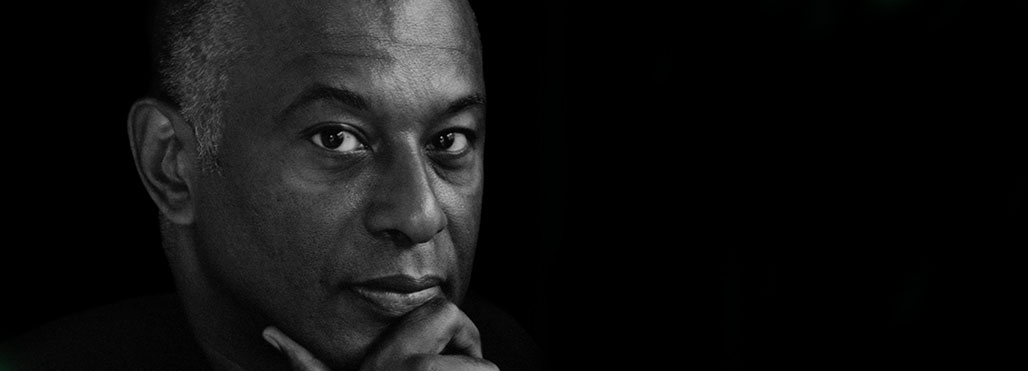When I first met Caryl Phillips, it was at an event for the David Oluwale Memorial Association in February 2016 hosted by the School of English. The writer, as he has constantly since moving there in the nineties, flew from America for the occasion. America then was a seemingly different place, for one large, orange reason: Donald Trump was not yet the president-elect. Almost two years later, Phillips is back to read from his latest novel on the author Jean Rhys in his honorary university, as well as to discuss race and academia, student protest, and being Black and British in Trump’s America.As part of our Black History Month series, Jodie Yates talks race in academia and black life in America with celebrated author and playwright Caryl Phillips.
Born in St Kitts and growing up in the only black family on a council estate in Leeds, Caryl Phillips, ‘Caz’ as he’s affectionately known, was told by his teacher that he could get into a Polytechnic university if he tried hard. A mix of fierce intelligence and stubbornness, Caz graduated from Queen’s College, Oxford University with a 2:1 in English Literature in 1979. Almost forty years, the same university is being accused of “social apartheid” for its low intake of students from ethnic minorities. However what is evident is the lack of diversity in the classroom and on the curriculum is on a nationwide level. Of his honorary university, Leeds, Phillips affirms that it is not a place ‘in which race, ethnicity, and discussions of what it means to be a minority are part of the programme’.
“Phillips addressed the sentiment that to be black and succeed you have to be exceptional…”
‘It’s lonely to be the only black student, but it’s also lonely to be the only black professor’ and Caz has been both. At the University of Leeds, in 2016 only 11% of academic staff and 16.3% of students were of a BME background. Blatant facts that support Phillips’ feelings that ‘you can put race on the syllabus but that doesn’t mean it matters to you other than a gesture’. This idea of a gesture alludes to the country’s sense of complacency of race in academia. The author, who is a lecturer at Yale, draws comparisons with the situation in the States. In Britain, there has never been the same ‘sort of equivalent upsurge where there’s been political pressure to form departments to study humanities through a racial lens’. Birmingham City University will be the first in the UK to accept students onto a Black Studies undergraduate course, the only of its kind, in 2018.
Within the severe lack of black people studying culture and society through a racial lens, we’re left to question whether academia is making discussion on race inaccessible. Phillips argues not academia itself but the language within it can exist to exclude people. Identifying fellow black academic Stuart Hall, Phillips claims Hall’s strengths lie in his lack of ‘diasporic mumbo jumbo’; straightforward ideas that become more complicated in the academy and ‘assume almost mythical proportions’.
“It’s lonely to be the only black student, but it’s also lonely to be the only black professor…”
For those that do champion diversity in education, it would seem that they’re ‘plowing an independent furrow, not an institutional furrow’. ‘No well-behaved black person ever did anything, sometimes you have to act out’ is Phillips response to the lack of student revolt in Britain. Underlining the fact that universities are in the business of education, the answer herein seems not to lie amongst the academics and their institutions, but within the students. With movements such as ‘Why is My Curriculum White’ flooding tertiary education, an academic revolution is only just beginning.
Over in America, Caz’s adoptive home, the election of President Barack Obama in 2008 has led some people to believe they inhabit a ‘post-racial society’, because having a black president suggests the work is done. Within eight years, the country has seemed to regress and elected ‘not the first asshole that America has [had] as president, but it’s definitely the biggest one’, a state that has made the author feel that the US is ‘a dangerous country, it’s reckless’. In a Q and A, Phillips addressed the sentiment that to be black and succeed you have to be exceptional. This Black History Month many are contesting why we “still need” the celebration. Even in 2017, barriers are being put in front of ethnic minorities to progress and succeed. Black History Month, black studies and black students and academics are more important than ever. The tertiary sector like many others in Britain may lack diversity, but one thing it doesn’t yet have is a president who ‘prefers white people over black people’.
Jodie Yates
[Images: Mariana Cook]

